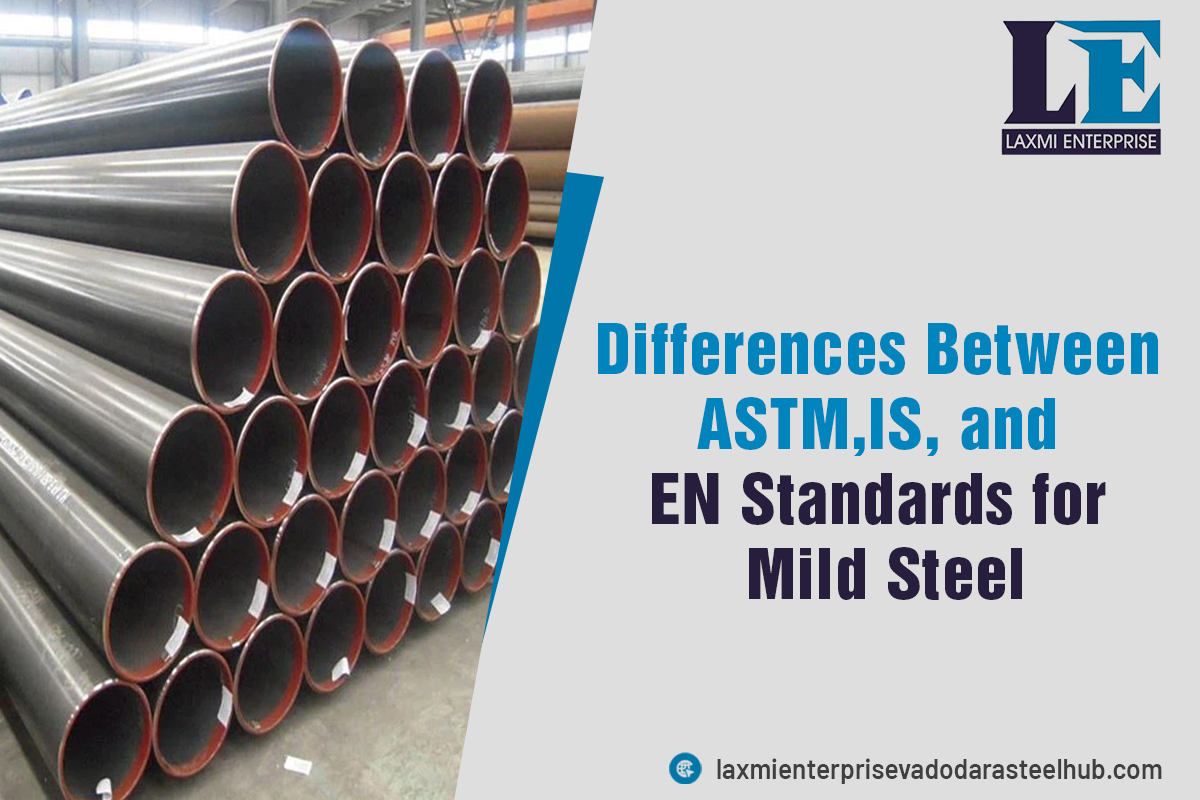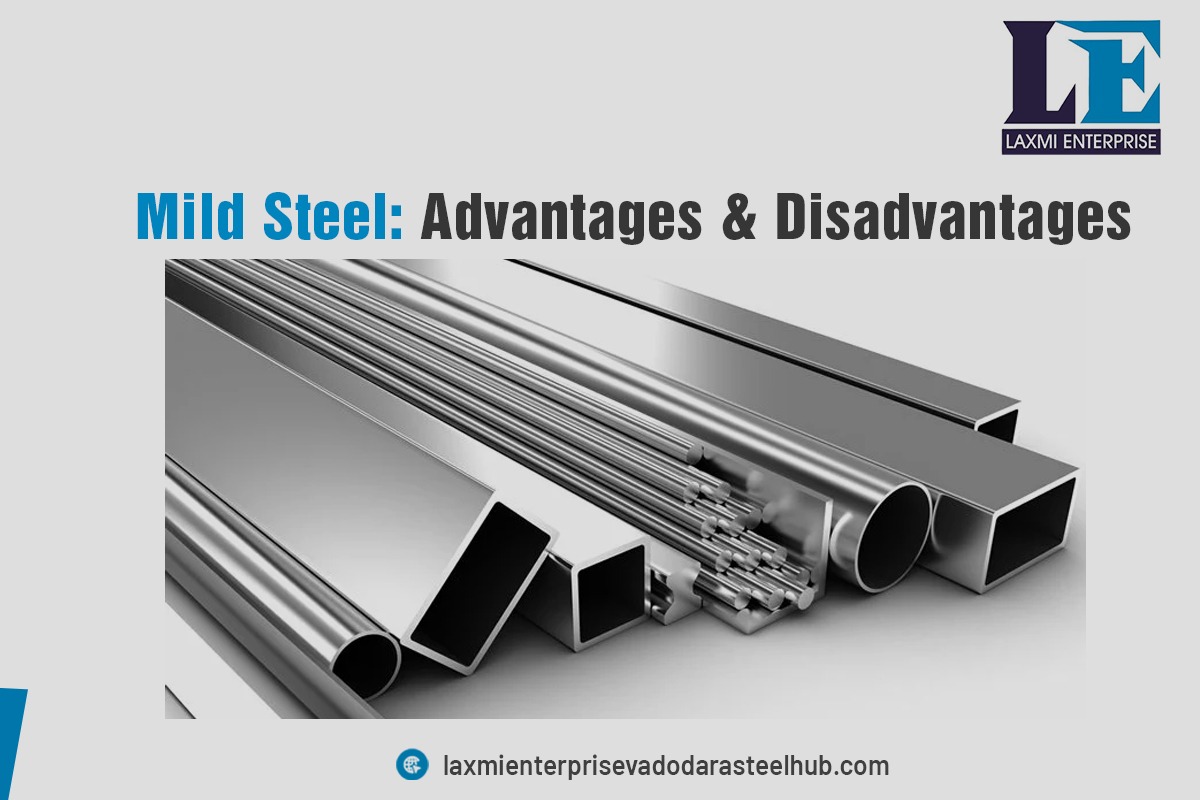There are various standards set by different organizations and institutions for mild steel. Every country has their own standards led by concerned authorities. ASTM, IS and EN are the most popular international standards that assure safety, quality and reliability. In this blog we understand the difference between ASTM, IS and EN standards for mild steel to help you make an informed decision for your project.
ASTM Standards for Mild Steel
ASTM International (American Society for Testing Material) is a globally recognized standard organization that sets technical standards for materials. The ASTM A36 is commonly used for mild steel and hot-rolled steel. These types of steel standard are applied to different mild steel grades in various forms including MS rectangular bars, MS square bars, MS round bars and shapes like angles, I-beams and H-beams.
IS Standards for Mild Steel
The Indian Standards (IS) specify the physical requirements of mild steel. The commonly available types of mild steel grades are the IS 2026 Grade A and Grade B. The IS standards mention the manufacturing requirements, freedom from defects, nominal sizes and mass, tolerances, physical requirements and tests undertaken.
EN Standards for Mild Steel
The EN Standards (European Standards) are mild steel. The EN standards emphasize composition and mechanical properties like weldability, ductility, corrosion resistance, forging and tensile strength.
Key Differences Between ASTM, IS, and EN Standards for Mild Steel
The ASTM, IS and EN standards are set for mild steel each specifying the technical requirements.
Scope & Focus:
ASTM Mild Steel Grades: The ASTM mild steel standard grades focus on a wide range of mild steel grades each designed for specific applications. The most common grade is A36, recognized for its excellent strength and formability. The other common grade is A283 that is ideal for low-pressure mild steel uses.
EN Mild Steel Grades: The European Standards categorize mild steel grades as S235JR, S275JR and S355J2. Each of these mild steel standards has different strengths and ductility suitable for structural uses.
IS Standard Mild Steel Grades: The Indian Standards for MS steel are Mild Steel Grade I and Mild Steel Grade II each with different strength, flexibility, hardness and toughness.
Strength Comparison:
ASTM Strength: Following is the yield strength of ASTM grade mild steel:
- ASTM A36: Tensile strength ranging between 58,000 to 80,000 psi with a minimum yield strength of 36,000 psi.
- ASTM A283: The Type A has a strength of 45,000 to 80,000 psi with a minimum yield strength of 24,000 psi.
- ASTM A516: This has a tensile strength from 55,000 to 75,000 psi with a minimum yield strength of 24,000 psi.
EN Strength: The EN 10025 S235JR offers a tensile strength of 52,000 to 74,000 psi and a minimum yield strength of 34,000 psi.
IS Strength: The IS standard mild steel has a tensile strength ranging from 58,000 to 80,000 psi.
Difference in Scope of Applications
It is crucial to choose the right mild steel for your specific applications. Mild steel of ASTM and EN standards are ideal for construction projects, automotive components, pressure vessels, equipment, etc. IS standard-grade mild steel is suitable for infrastructure, construction and general fabrication applications.
It’s essential to understand the difference between ASTM, IS and EN to help you choose the right grade for your specific applications. Laxmi Enterprise offer MS steel Vadodara in different grades that complies with industry standards. For custom length and finishes, call us.


